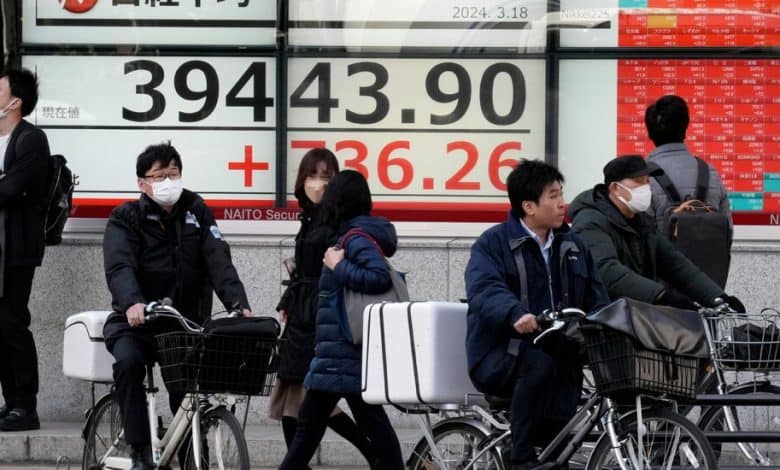Japan Raises Interest Rates for First Time in 17 Years

Japan’s central bank raised interest rates for the first time since 2007 on Tuesday, pushing them above zero to close a chapter in its aggressive effort to stimulate an economy that has long struggled to grow.
In 2016, the Bank of Japan took the unorthodox step of bringing borrowing costs below zero, a bid to kick-start borrowing and lending and spur the country’s stagnating economy. Negative interest rates — which central banks in some European economies have also applied — mean depositors pay to leave their money with a bank, an incentive for them to spend it instead.
But Japan’s economy has recently begun to show signs of stronger growth: Inflation, after being low for years, has sped up, cemented by larger-than-usual increases in wages. Both are clues that the economy may be on a course for more sustained growth, allowing the central bank to tighten its interest rate policy years after other major central banks raised rates rapidly in response to a jump in inflation.
Even after Tuesday’s move, interest rates in Japan are far from those in the world’s other major developed economies. The Bank of Japan’s target policy rate was raised to0.1 percentfrom minus 0.1 percent.
The central bank also scrapped a policy in which it bought Japanese government bonds to keep a lid on how high market rates can go, encouraging businesses and households to borrow cheaply. The bank had been slowly relaxing the policy over the past year, resulting in higher yields on debt as the country’s growth prospects improved.
In many countries, a surge in inflation has tormented consumers and policymakers, but in Japan, which more often grappled with growth-sapping deflation, the recent rise in prices has been welcomed by most economists. The Japanese stock market, bolstered by bullishness in the economy and corporate reforms that favor shareholders, has attracted vast sums of money from investors around the world, recently helping the Nikkei 225 index break a record high that had stood since 1989.
